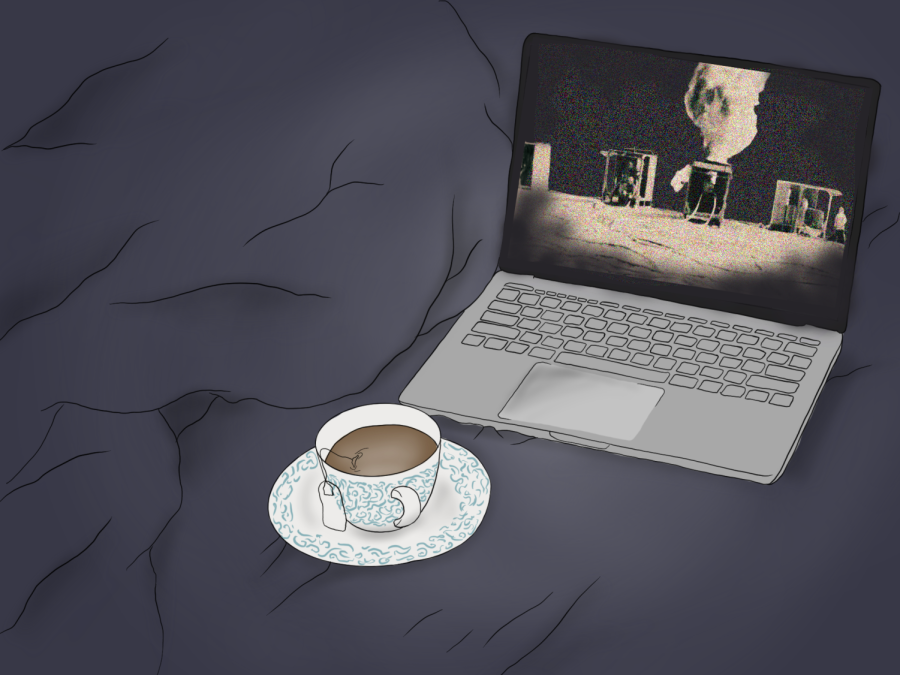Off the Radar: ‘Lessons of Darkness’ in the chaos of the Gulf War
Off the Radar is a weekly column surveying overlooked films available to students for free via NYU’s streaming partnerships. “Lessons of Darkness” is available to stream on Kanopy.
“Lesson of Darkness” by Werner Herzog is a visually striking documentary on the pillage of the Gulf War. (Illustration by Aaliya Luthra)
February 3, 2023
Werner Herzog’s 1992 film, “Lessons of Darkness,” is a blazing symphony of destruction and trauma in the aftermath of human conflict. Over the course of 54 minutes, the documentary tracks the wanton devastation suffered by civilians and the environment as a result of the Gulf War. The absence of a clear narrative structure and contextual information allows the viewer to be totally immersed by the infernal hellscape of the Kuwaiti oil fields. Herzog, a master documentarian, uses a dramatic orchestral score to stitch together haunting footage of an environment ravaged by human conflict and strip away the patriotic theatrics employed by new media to cover the Gulf War. His depiction of the war and its effects are profoundly raw, emotional and paradoxically beautiful.
The film, split into 13 titled sections, takes the perspective of an omniscient observer to the carnage. Overhead helicopter shots capture the scarred desert below, mauled by aerial bombardment and flooded by a sea of burning tar. The horizon is indelibly stained by a blanket of black smoke and dark orange hues; it’s hard to believe the documentary footage is genuine and not a doctored backdrop for a blockbuster sci-fi film. The surreal environment is enhanced by Herzog’s own narration, vague and detached, prompting the audience to adopt the perspective of a passive — and perhaps extraterrestrial — being looking onto the consequences of human actions.
While “Lessons of Darkness” holds up as a visually stunning, captivating piece in Herzog’s filmography, its most enduring achievement is its minimalistic, yet viscerally transparent, illustration of man at war. The 24/7 coverage of the Gulf War has left an immeasurable imprint on a whole generation of television viewers. Newsreels of countless American troops and billions of dollars worth of military hardware being deployed in Iraq have been seared into a collective cultural memory. This representation of the American war machine at full force by the news media is a patriotic fantasy, deliberately concealing the human and environmental costs of conflict. Herzog strips the conflict of all its sensationalism, politicization and borderline fetishization. By focusing almost solely on the images of burning oil fields, decimated structures and mountains of black smoke, Herzog portrays war not as a glorious endeavor, but rather a step closer to apocalypse.
Herzog’s documentation of these otherwise overlooked scenes of military intervention speaks volumes to the destructive path humanity continues to walk down. In this film, few words are needed to capture the barbarism of man’s greed and its horrific potential to inflict irreparable damage to the planet.
Contact Mick Gaw at [email protected].
























































































































































